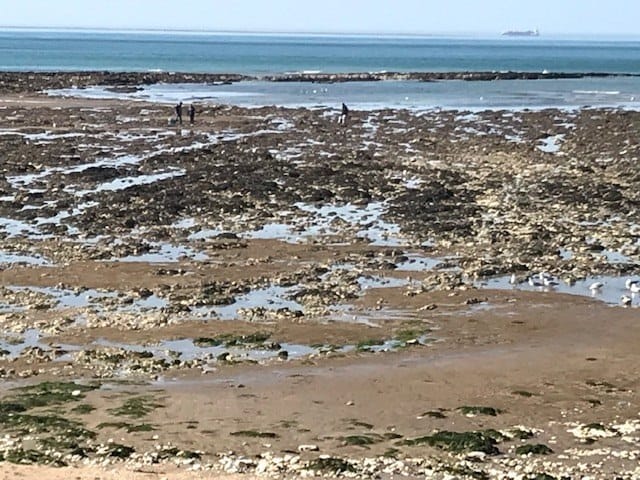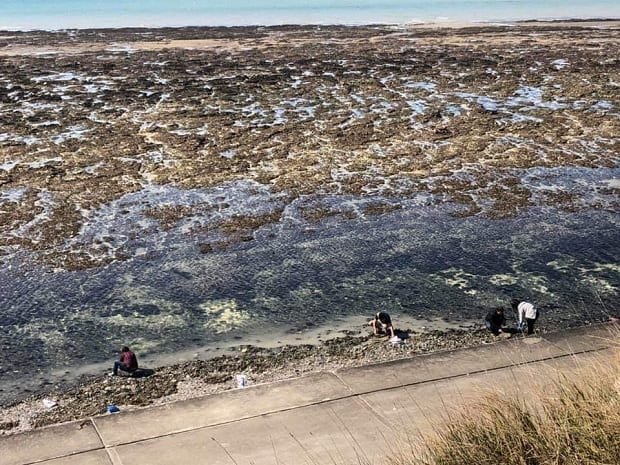
By Jodie Nesling
A senior government investigator says the level of illegal mass shellfish harvesting cases on the Thanet coastline has risen over the past year, with lockdown playing a role due to the need for pickers to earn income and because restrictions made the activity more noticeable to residents.
Jennifer Baines has been with the Gangmasters Licence and Abuse Authority (GLAA) since it was established in 2005 and looks after a huge swathe of the UK coastline covering Portsmouth to Suffolk.
She said: “It’s notoriously a hidden crime. There are so many extremely vulnerable people who are living here illegally and are scared of being deported or fined. There are currently a number of Thanet cases that opened last year which are being investigated.”
Ms Baines knows the isle coastline intimately after growing up in east Kent and says her knowledge of the area is beneficial to investigations. She said: “I have grown up using the beaches and watching people gathering shellfish. It does help having that local knowledge compared to when I am say, investigating somewhere near Portsmouth.”

The organisation’s main aim is to keep people safe and prevent deaths. She said: “We have a duty of care for people – the tides are all very different, say from Botany Bay to Deal. When we have a case in somewhere like Camber I shudder because of the risks and knowing what happened in Morecambe Bay.”
Ms Baines says foraging is not the issue -and this is not illegal – but evidence overwhelmingly points to gang operations for mass harvesting which prey on those trafficked into the UK. Ms Baines explained: “We’re absolutely not saying that everyone that picks shellfish on the beaches is illegal and of course some are going to forage for their own needs but the intelligence is that many, especially of Chinese and Vietnamese origin, are travelling from up to 150 miles away to work here in Thanet – they are not local.”
Rather than supply the local restaurants and for personal needs shellfish is used on mass predominantly as a key ingredient flavouring sauces or stocks. Since the Morecambe tragedy, where 26 cockle pickers died after they were cut off from the tide, commercial shellfish farming requires a licence.
The ramifications of Coronavirus have brought fresh challenges for the team who work alongside multiple agencies including police, councils and charities to safeguard victims. Ms Baines, who started work investigating benefit fraud which frequently linked to gangmasters, says vulnerable workers were perhaps without any income during the lockdown period and not receiving furlough or other benefits forcing them to take what was on offer. She said: “These issues are very hidden -especially if the victim can’t speak out as they are here illegally.”
Victims are trafficked to the UK on the promise of work and usually find themselves bound to their gangmasters – unable to speak the language and without income leaving them exceptionally vulnerable.
Modern slavery is a far reaching term for a number of abuses ranging from County Lines gang members, sex trafficking and the workplace. Charities such as The Medaille Trust which has a centre in Thanet work closely with the GLAA in helping to safeguard victims.

